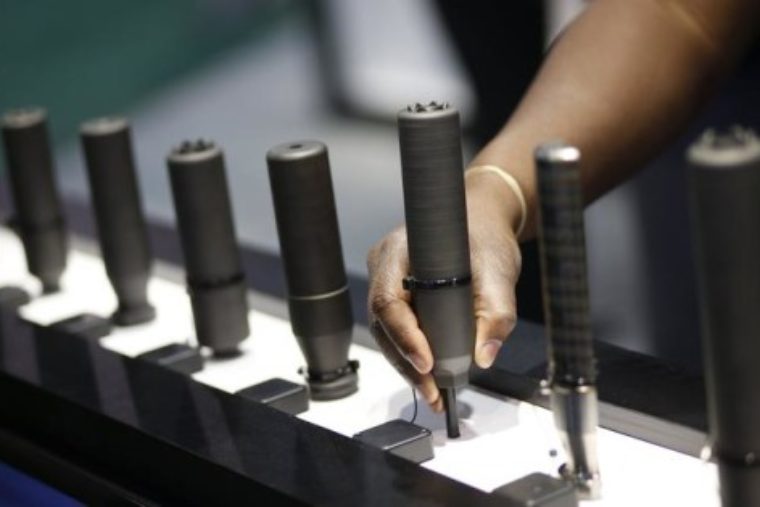The federal trial of a Kansas man for manufacturing and selling firearms and silencers without a federal license could very well turn out to be the pivotal case that not only challenges the constitutionality of the National Firearms Act of 1934, but also every federal firearms law ever passed in a battle that will determine whether it is the states or the federal government that has the constitutional right to pass gun laws.
Put bluntly, this could be huge.
When Shane Cox began selling his homemade firearms and silencers out of his military surplus store, he stamped “Made in Kansas” on them to assure buyers that a Kansas law would prevent federal prosecution of anyone owning firearms made, sold and kept in the state.
The 45-year-old Chanute resident also handed out copies to customers of the Second Amendment Protection Act passed in 2013 by the Kansas Legislature and signed by Gov. Sam Brownback, and even collected sales taxes. His biggest selling item was unregistered gun silencers that were flying out of the shop as fast as Cox could make them, prosecutors said later. One of those customers – 28-year-old Jeremy Kettler of Chanute – was so enthusiastic about the silencer that he posted a video on Facebook.
But last week a jury found Cox guilty of violating federal law for the manufacture, sale and possession of unregistered firearms and silencers. Kettler was found guilty on one count for possessing the unregistered silencer.
The case could reverberate across the country because it cites the Second Amendment to the U.S. Constitution, pitting the federal government’s right to regulate firearms against the rights of states. The judge overseeing the case expects it ultimately to end up before the U.S. Supreme Court.
At trial, defense attorneys contended their clients believed the Kansas law made their activities legal, arguing they are “caught in the crossfire” of the struggle between the state and the federal government over gun control.
Cox and Kettler were convicted under the National Firearms Act, which is a part of the Internal Revenue code enacted under Congress’ power to levy taxes. The case raises the question of whether that taxing authority can be used to regulate firearms that stay within state borders. Advocates for state’s rights also contend such guns do not fall under Congress’ power to regulate interstate commerce.
After a decades-long wait, we finally appear to have a case that is likely to see the United States Supreme Court have to directly examine whether the Founding Fathers meant what they said when they wrote amendments to a federal Constitution that was designed to tightly bind and constrict the reach of the federal government.
by Bob Owens



